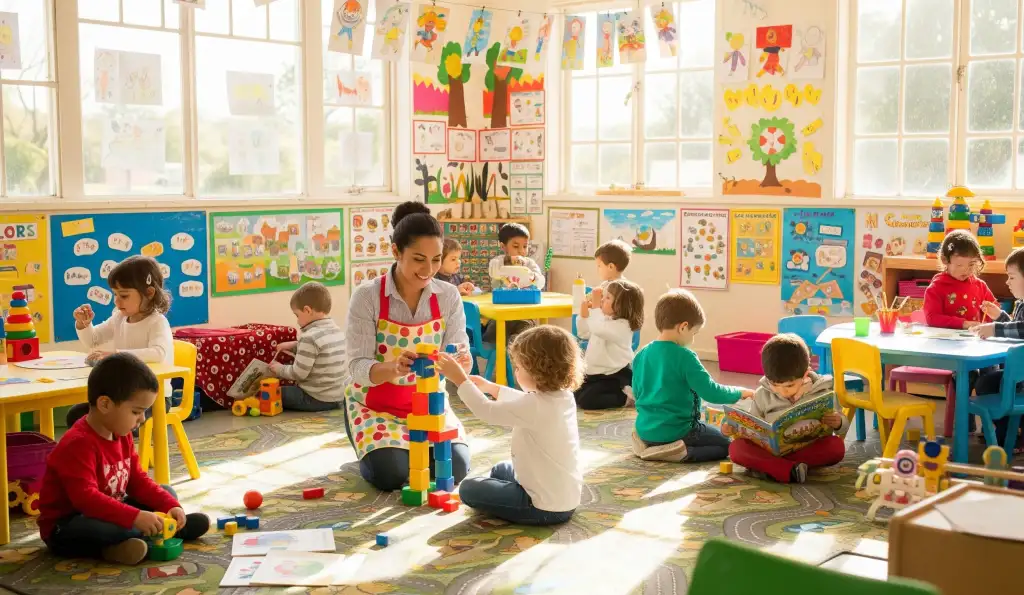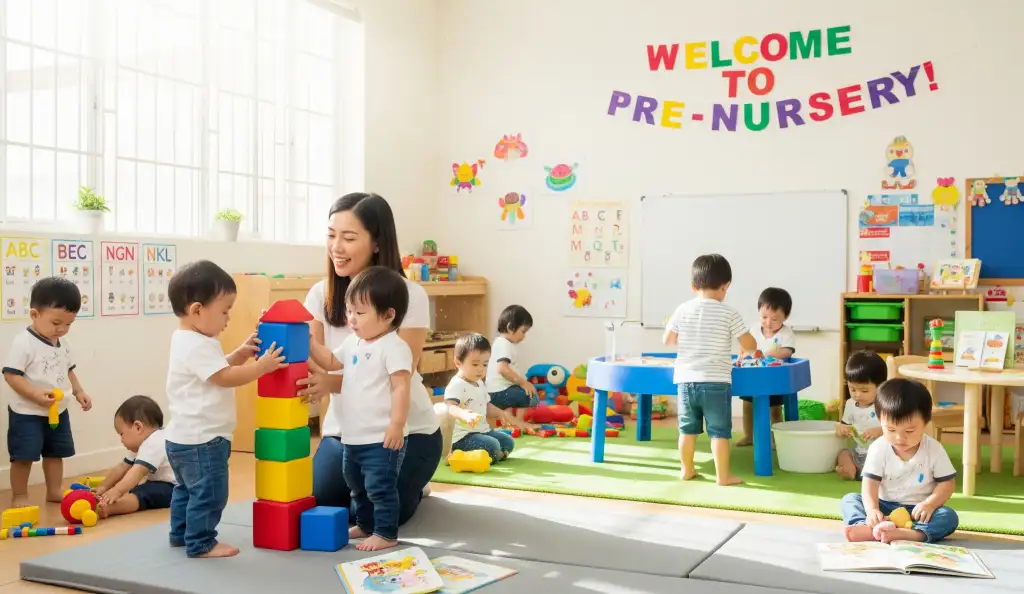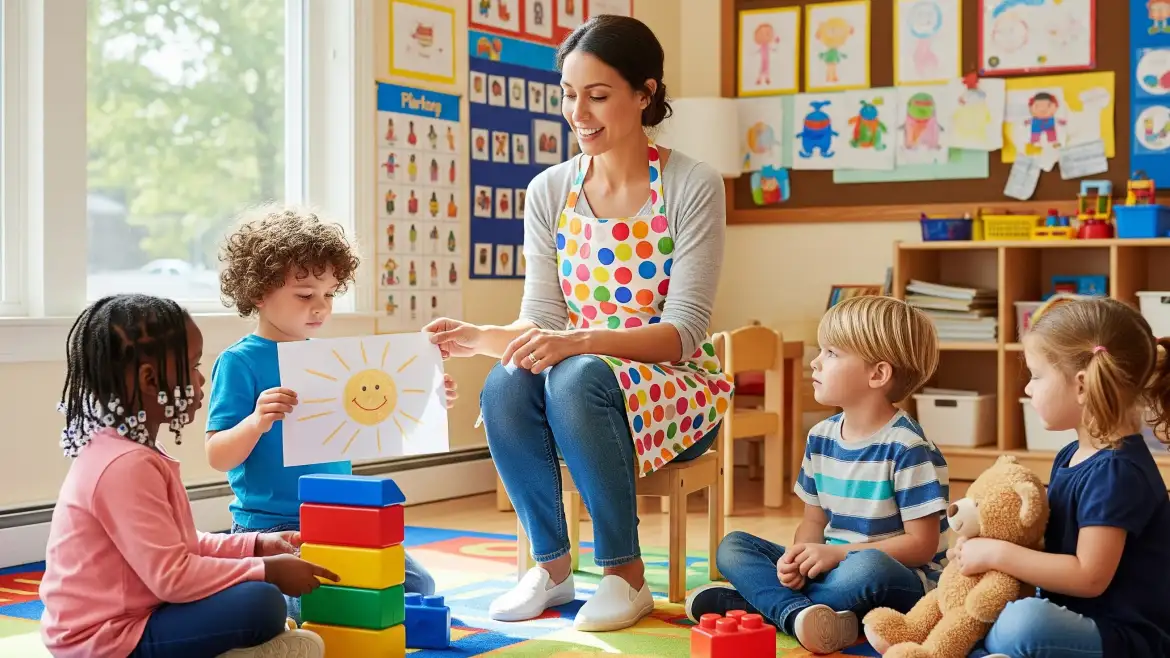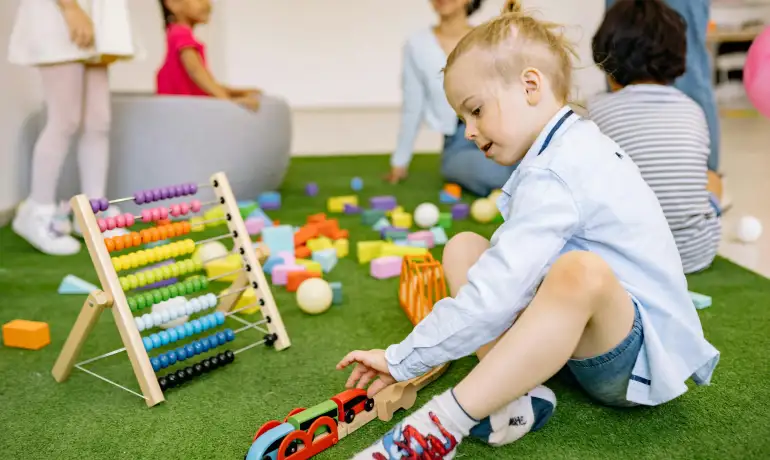Choosing the right nursery school is one of the most important decisions you’ll make as a parent. This is more than just finding a place for your child to play. It’s about shaping their foundation for learning, creativity, social skills, and independence.
In this guide, we’ll cover everything you need to know about nursery schools: what they are, why they matter, how to choose the right one, and tips to prepare your little one for this exciting journey.
1. What Is a Nursery School?
A nursery school is an early childhood education program for children aged roughly 2 to 6 years old. It helps kids build emotional, social, and cognitive skills in a structured yet playful environment.
Unlike daycare, which focuses primarily on supervision, nursery schools integrate planned learning activities into the daily routine. From storytelling sessions to hands-on crafts, the goal is to make learning enjoyable while preparing children for primary school.
For a more formal definition, you can explore this Wikipedia article on preschool.
2. Why it Matters for Early Childhood Development

A well-designed nursery school program supports the holistic growth of a child. Here are some benefits:
- Cognitive Development – Children are introduced to concepts like colors, shapes, and numbers in fun, interactive ways.
- Social Skills – Interacting with peers teaches cooperation, empathy, and teamwork.
- Language Skills – Through storytelling and guided conversations, kids expand their vocabulary and communication abilities.
- Emotional Growth – Learning to express feelings and handle challenges builds resilience.
- Motor Skills – Activities like painting, building blocks, and outdoor play enhance both fine and gross motor development.
Studies consistently show that children who attend nursery school tend to adapt better academically and socially when they transition into primary education.
3. How to Choose the Right Nursery School
Selecting the best nursery school for your child can feel overwhelming. Here are the most important factors to consider:
3.1 Location and Accessibility
A nearby nursery school saves time and reduces daily stress for both parents and children.
3.2 Curriculum and Teaching Approach
Different schools use various teaching philosophies, such as:
- Montessori: Focuses on self-directed learning and independence.
- Reggio Emilia: Encourages creativity through exploration and inquiry.
- Play-Based Learning: Prioritizes hands-on experiences to foster curiosity.
Choosing the right curriculum depends on your child’s personality and learning style.
3.3 Teacher-to-Child Ratio
A lower ratio means more personalized attention. Ideally, classes should have small groups so each child receives proper guidance.
3.4 Safety and Facilities
Always visit the school beforehand. Check security measures, classroom cleanliness, outdoor spaces, and overall child-friendliness.
4. Nursery School vs. Daycare vs. Preschool
These terms are often used interchangeably, but they serve different purposes:
| Nursery School | Daycare | Preschool | |
|---|---|---|---|
| Age | 2–6 years | Infants–6 years | 3–6 years |
| Focus | Balanced learning + play | Care and supervision | Academic preparation |
| Hours | Half-day or full-day | Mostly full-day | Typically half-day |
Understanding these differences will help you choose the best setting for your child.
5. Ideal Age to Start Nursery School
Most children begin nursery school between 2 and 3 years old, but readiness varies. Signs that your child might be ready include:
- Showing curiosity about the world around them
- Enjoying interaction with other kids
- Demonstrating early independence, like dressing themselves or feeding with minimal help
For more insights, check this guide on choosing the right nursery age.
6. How Nursery School Prepares Children for the Future
A good early childhood school does more than teach ABCs and numbers — it helps shape lifelong learners. Kids gain confidence to express themselves, develop problem-solving skills, and learn how to adapt to structured routines.
These early experiences lay the groundwork for academic success, emotional well-being, and positive relationships throughout life.
7. What Parents Should Know
In Singapore, early childhood school are regulated by the Early Childhood Development Agency (ECDA) to ensure safety and quality standards. Parents can choose from a wide range of programs, from bilingual curriculums to inquiry-based learning models.
Schools like Little Unicorn Preschool offer a well-balanced environment, combining structured education with creative play to nurture a child’s natural curiosity.
8. Checklist Before Enrolling Your Child
Before deciding, here’s a simple checklist to guide you:
- Visit the school and observe how teachers interact with children
- Ask about the curriculum and daily routines
- Review safety measures and hygiene policies
- Discuss teacher qualifications and experience
- Understand meal plans, nap times, and extracurricular activities
9. Common Mistakes Parents Make
Avoid these pitfalls when choosing a nursery school:
- Focusing only on cost without evaluating quality
- Skipping school visits before enrolling
- Ignoring the teaching philosophy and curriculum
- Overlooking your child’s emotional readiness
10. Preparing Your Child for Nursery

Transitioning into nursery school can be exciting but challenging. To make it smoother:
- Start practicing routines like early wake-ups and meal times.
- Introduce your child to social settings gradually.
- Talk positively about school to build excitement.
- Pack a comfort item, like a favorite toy, to ease separation anxiety.
FAQ
1. What’s the difference between nursery school and preschool?
Nursery schools blend structured learning with play, while preschools tend to focus more heavily on academic readiness.
2. At what age should my child start nursery school?
Most start between ages 2 and 3, depending on developmental readiness.
3. How do I know if my child is ready?
Signs include curiosity, independence, and enthusiasm for exploring new environments.
4. Are nursery schools in Singapore regulated?
Yes, most are overseen by the ECDA to ensure quality and safety.
5. How do I choose the best nursery school?
Look at the curriculum, teacher quality, safety measures, and whether the environment matches your child’s personality.
Final Thoughts
A good nursery school builds more than academic skills — it nurtures creativity, emotional intelligence, and lifelong curiosity. By taking time to research, visit, and compare, you can find the perfect fit for your child.

Looking for a nurturing, high-quality learning environment? Discover how Little Unicorn Preschool can support your child’s growth and book a school tour here.



